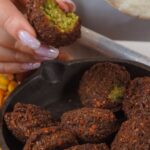Can You Build Muscle on a Gluten-free Diet
For many fitness enthusiasts, the quest for muscle growth often involves scrutinizing dietary choices. One common concern is whether a gluten-free diet can support muscle building. With gluten sensitivity and celiac disease on the rise, more individuals are opting for gluten-free lifestyles. But can this dietary shift coexist with effective muscle-building strategies? The answer lies in understanding the essential nutrients required for muscle growth and how a gluten-free diet can accommodate them.
Understanding Muscle Growth
Muscle growth, or hypertrophy, occurs when the body repairs muscle fibers that have been stressed during exercise, particularly resistance training. This process requires an adequate intake of protein, essential fatty acids, vitamins, and minerals. Protein, in particular, plays a pivotal role, as it provides the building blocks—amino acids—that repair and grow muscle tissue. While gluten-containing foods like wheat, barley, and rye are often rich in carbohydrates and protein sources, it’s possible to find suitable alternatives that can promote muscle growth without compromising dietary restrictions.
Protein Sources on a Gluten-free Diet
When it comes to protein, a gluten-free diet can offer plenty of options. Lean meats such as chicken, turkey, and beef are excellent sources of high-quality protein. Fish and seafood, rich in omega-3 fatty acids, not only provide protein but also promote heart health. Dairy products like yogurt, milk, and cheese are also gluten-free and packed with protein, calcium, and other essential nutrients.
For those who prefer plant-based options, legumes, nuts, seeds, and gluten-free grains like quinoa, brown rice, and buckwheat can supply adequate protein. Moreover, many gluten-free protein powders, derived from sources like pea, rice, or hemp, can supplement your diet effectively. The key is to diversify your protein intake to ensure that you’re obtaining all essential amino acids required for optimal muscle recovery and growth.
Carbohydrates and Energy
Carbohydrates are crucial for providing the energy needed during intense workouts. While gluten-containing grains form a substantial part of many athletes’ diets, gluten-free alternatives can easily fill this gap. Sweet potatoes, oats (ensure they are certified gluten-free), fruits, and vegetables are all excellent carbohydrate sources that fuel workouts and replenish glycogen stores.
Incorporating these carbohydrate sources into your meals not only supports energy levels but also aids in recovery post-exercise. Balancing your carbohydrate intake with protein will ensure that your body has the necessary energy and nutrients to build muscle effectively.
Healthy Fats for Hormonal Balance
Healthy fats are often overlooked in muscle-building discussions but are vital for overall health and hormonal balance. Hormones like testosterone play a significant role in muscle growth, and healthy fats can support the production of these hormones. Avocados, olive oil, nuts, and fatty fish contribute to a balanced diet that aids in recovery and promotes muscle synthesis.
A gluten-free diet naturally accommodates these healthy fats, allowing individuals to focus on including them without worry. Incorporating a variety of fat sources ensures that you’re not only fueling your workouts but also supporting your overall wellness.
Monitoring Micronutrients
A gluten-free diet can sometimes lead to deficiencies in certain micronutrients typically found in wheat-based products. Iron, B vitamins, and fiber are often lower in gluten-free diets if not carefully planned. To combat this, include a range of fruits, vegetables, nuts, and seeds in your meals. Foods like spinach, lentils, and fortified gluten-free cereals can help meet your micronutrient needs.
Regularly monitoring your nutrient intake, perhaps with the guidance of a nutritionist, can help ensure that you’re not missing out on essential vitamins and minerals crucial for muscle growth and overall health.
Fostering Muscle Growth Without Gluten
Building muscle on a gluten-free diet is entirely feasible with thoughtful planning and a focus on nutrient-dense foods. By prioritizing protein, incorporating ample carbohydrates for energy, and including healthy fats, you can create a well-rounded diet conducive to muscle growth.
Embracing a gluten-free lifestyle does not mean sacrificing your fitness goals; rather, it opens the door to exploring diverse food options that can enhance your muscle-building journey. With the right approach, you can thrive both in the gym and in your dietary choices.


